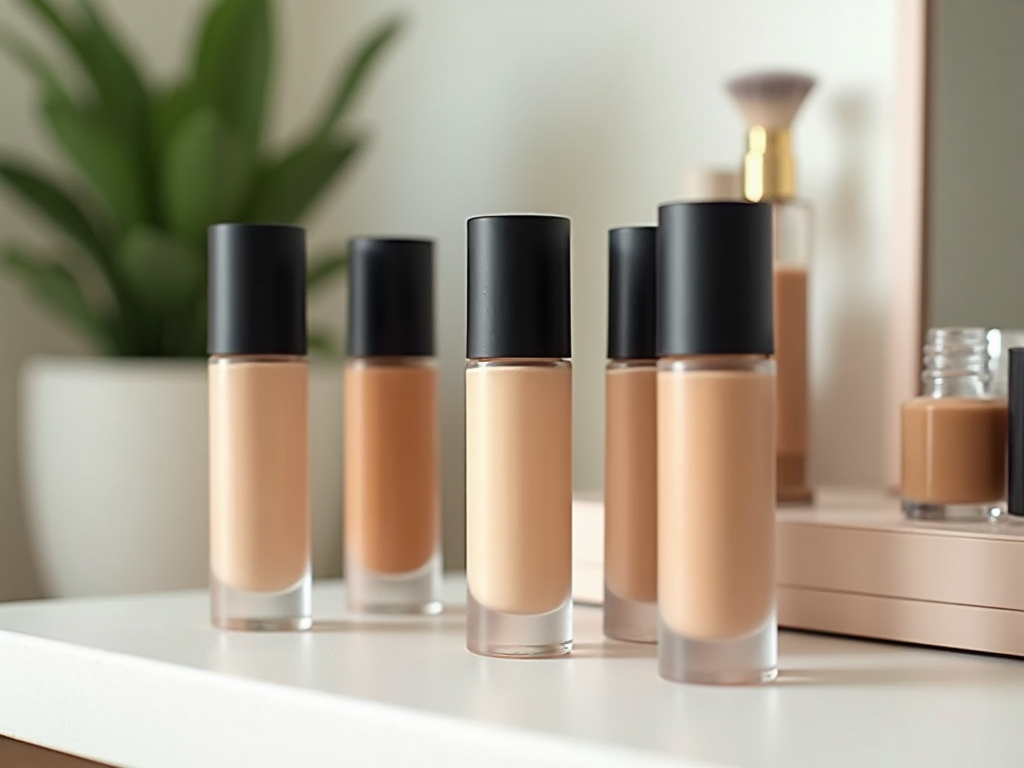Makeup lovers know the struggle all too well: you’ve just flawlessly applied your foundation, only to watch as it transforms into an unflattering shade within a few hours. This unwanted metamorphosis is often the result of oxidation, a process that affects not just the look of your cosmetic but also how it feels on your skin. Understanding the science behind this phenomenon is essential for anyone serious about achieving that coveted, long-lasting look. Fortunately, various techniques can help you combat oxidation and ensure your makeup remains vibrant through the day.
Foundation oxidation happens when the makeup interacts with air, heat, and your skin’s natural oils, causing a change in color and texture. This can lead to a makeup mishap that no one wants to encounter. So, how can you safeguard yourself from this common issue? Below, you’ll find five effective strategies designed to preserve the integrity of your foundation and keep your complexion looking fresh, all day long.
Understanding Foundation Oxidation

Foundation oxidation refers to the chemical reactions that occur in the skin after makeup is applied. The process can swiftly alter the appearance of the product, making it look darker or uneven. Numerous factors contribute to this, including the makeup’s ingredients, environmental conditions, and even the specific characteristics of your skin. For instance, oily skin types are more prone to oxidation, as excess oil can accelerate the breakdown of cosmetic components. Acknowledging these factors is the first step toward finding effective prevention methods.
Choose the Right Foundation Formula

Selecting the right type of foundation can significantly reduce the risk of oxidation. Not all foundations are created equal, and some formulas are more susceptible to environmental factors than others. Therefore, it’s crucial to consider both the base and finish of your makeup. Products that are labeled as ‘oxidation-resistant’ or ‘long-wear’ are specifically formulated to withstand these reactions.
When shopping for foundation, examine the ingredient list thoroughly. Look for formulas that contain specific compounds known to minimize oxidation. Commonly, oil-free foundations can be more beneficial, as they reduce the likelihood of a greasy finish that can lead to quicker oxidation. Keep in mind that not all ingredients are suitable for every skin type. For example, sensitive skin may react poorly to certain preservatives or fragrances, necessitating careful selection.
Apply a Suitable Primer
The choice of a good primer makes a world of difference in your makeup routine. A high-quality primer acts as a protective barrier between your skin and the foundation, which helps prevent oxidation. This step is often overlooked, but it can significantly prolong the life of your makeup. There is an array of primers available today, so knowing what to look for is crucial.
- Helps in creating a smooth canvas for foundation application
- Minimizes the appearance of pores and imperfections
- Increases the longevity of your makeup
- Seals in moisture for dry skin types
- Controls excess oil for those with oily skin
Set with Powder or Spray
Setting your foundation with either a translucent powder or a setting spray can make a considerable difference in reducing oxidation. The primary purpose of these products is to lock in your makeup and create a protective layer that resists air and humidity. However, choosing the right product is essential to ensure that it complements your skin type and foundation.
| Setting Product | Skin Type | Key Features |
|---|---|---|
| Translucent Powder | All Skin Types | Controls shine, adjusts color, and is lightweight |
| Matte Setting Spray | Oily Skin | Controls sebum and gives a lasting matte finish |
| Hydrating Setting Spray | Dry Skin | Keeps skin moisturized and luminous |
Be Mindful of Your Environment
The environment you find yourself in can heavily influence the quality of your foundation. Factors such as humidity, heat, and even air pollution can hasten oxidation, prompting an unwanted change in color. To counteract this, consider your daily activities and locations. For instance, while spending time outdoors may be enjoyable, it’s essential to seek shade or air conditioning to maintain your foundation’s integrity.
Controlling the factors that lead to oxidation can be straightforward. Simple strategies such as avoiding direct sunlight during peak hours or staying indoors on particularly humid days can be significantly beneficial. If you must go outside, applying an SPF can protect your skin and makeup from harmful UV rays, which can also contribute to oxidation. Implementing these techniques will lead to a more consistent makeup experience.
Store Your Products Properly
The way you store your makeup products can greatly influence their performance over time. Heat and humidity can alter cosmetic formulas, potentially causing oxidation even before application. Understanding how to store your foundation is crucial for maintaining its quality and effectiveness. Instead of leaving products in the bathroom, a cooler, dry place like a drawer or designated makeup station would be more suitable.
- Store in a cool, dry area away from sunlight
- Avoid areas with high humidity, such as bathrooms
- Keep the product tightly sealed when not in use
Conclusion
Preventing your foundation from oxidizing involves more than simply applying products. It’s a holistic approach that incorporates the right formulas, primers, and storage methods. By consciously incorporating these tips into your makeup routine, you can ensure that your foundation remains vibrant, beautifully reflecting your efforts in application. Remember, the interplay between your cosmetics and the environment is constant, but with a little knowledge and strategic planning, you can maintain a flawless look that lasts.
Frequently Asked Questions
- What causes foundation to oxidize? Foundation can oxidize due to exposure to air, heat, humidity, and certain skin types, particularly oily skin, which can speed up the oxidation process.
- Can I fix oxidized foundation? Once foundation oxidizes, it can’t be completely fixed. However, applying a lighter shade or using a corrective product can help even out the skin tone.
- Is all foundation prone to oxidation? Not all foundations are created equal. Some formulas, particularly those labeled “long-wear” or “oxidation-resistant,” are designed to reduce the chances of oxidation.
- How long does it take for foundation to oxidize? The time can vary depending on the formula and environmental factors, but oxidation can happen within hours of application.
- Should I always wear a primer? While not mandatory, using a primer can help create a barrier to reduce oxidation and improve the longevity and appearance of your foundation.